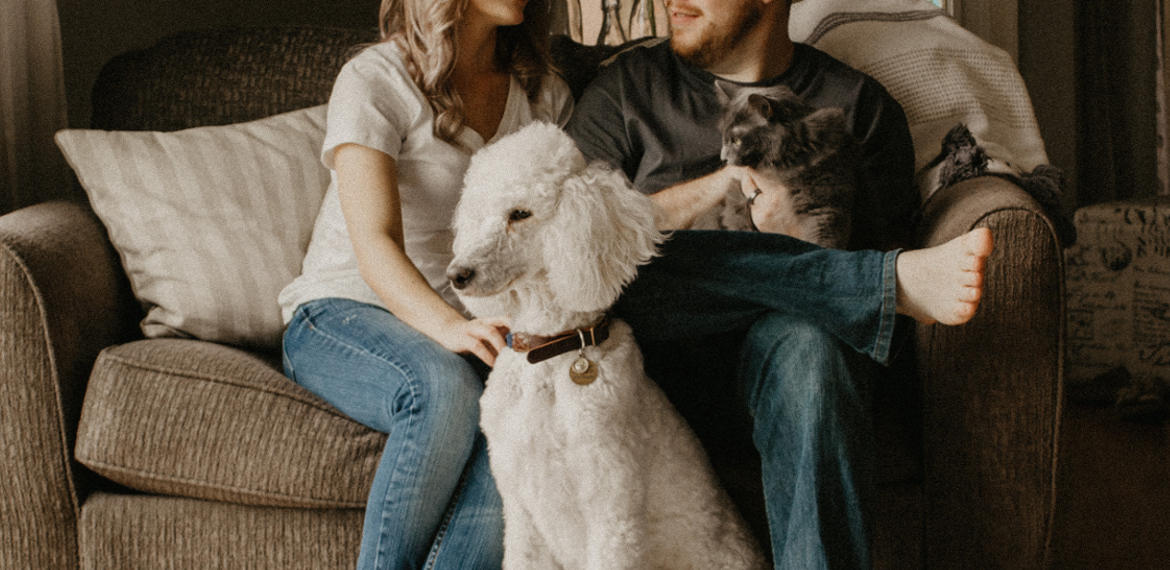
Am I in a Manipulative Relationship?
How do we know when our relationship is no longer healthy? Usually, it isn’t until long after the breakup that we look back and realize how much time was wasted. After enough time has passed, we are finally able to dissect the relationship and see the problems. However, wouldn’t it be nice if we could spot and address unhealthy relationship habits before things got to that point? Before we’ve wasted so much time and exhausted so much energy?
In order to save yourself from avoidable heartbreak and emotional distress, you have to be aware of relationship warning signs. By educating yourself on these common factors, you can more quickly identify when a relationship is heading south, and be proactive in protecting your mind and heart. I’ve listed eight red flags below, and while these aren’t the only defining factors of a manipulative relationship, they are typically the easiest to spot and also the most commonly overlooked.
1. The people around you don’t like the person
I’m not saying you should panic if one of your parents or one of your close friends is iffy about your significant other. I mean multiple people are passionately not fans of the person you’re with. If you’re having a hard time finding someone in your circle who genuinely likes your partner, that is a definite cause for concern.
2. You’re super defensive when anyone brings up your person or your relationship
Of course, you should be protective of your relationship and partner, but how protective do you have to be? And how often? Has it gotten to a point where you never talk about your partner and/or your relationship out of fear of what people are going to say? You shouldn’t ever have to conceal your relationship. Protect it? Yes. Keep boundaries? Yes. Hide it? No.
3. You tend to do the compromising
In any relationship, there is give and take. However, it’s not fair or sustainable if you’re the only one making sacrifices. There should always be a level of equality when it comes to meeting your individual needs in the relationship, even if it’s not on a daily basis. There may be weeks where one of you has a major work project, so the other cooks, cleans, encourages and delivers more. The effort should then be reciprocated at some point. If you’ve been together for months, and start to notice that they never ask about your day, what you need or how they can help you, then you’re being used. And that’s not okay.
4. They put you down, compare you to others, or hide you
Your partner should be a source of comfort and encouragement. If they’re calling you names, insulting you, or worse, then there is no doubt that things have taken an unhealthy turn. People get upset and people are allowed to argue, but your disagreements should never get dirty. A person who is constantly putting you down is trying to break you and gain control over the relationship. You don’t deserve that. No one deserves that.
5. You find yourself complaining to anyone and everyone who will listen and take your side in the relationship
Initially, you may have avoided sharing any negative details of your relationship. But when you can’t shake the feeling that something is wrong, you start to look outward for confirmation. You might find yourself repeating the same story to multiple people in hopes of finding someone who agrees with what happened or how you’re feeling. It may even get to the point where you confide in people you know have unhealthy relationship habits just so you can find someone who can connect with you and relate to your situation. Unfortunately, if you’re unable to rely on the people you normally trust, then this may be a sign that the relationship is not healthy.
6. They don’t want to touch you, avoid intimacy, or have excuses for not wanting sex
Every relationship is different, and every person’s desire for intimacy is different. However, unless you or your partner have expressed being asexual, whether sexually or romantically, then most relationships involve regular physical contact. If this has lessened, then there may be a problem. If your partner is using it as a threat or a way to get something from you, then there is DEFINITELY a problem.
7. You’ve finally ended things, they beg for you back, you say no, and then they flip
Let’s say you finally find the courage to end the relationship because it’s no longer good for you. Your partner then begs for you to take them back and claims that everything will change. They promise it’ll be different if you give them one more chance. Now, let’s say that you remain strong, stand your ground and say no. You’ll know you made the right choice if your ex-partner starts calling you names and telling you what a horrible person YOU are after you cut them off.
8. You’ve taken some space and realize you haven’t been happy
When in doubt, take some space. Maybe you’re unsure of whether the relationship is safe or you’re being used. If this is the case, try and take some time apart. During your time away from one another, act as though you are no longer together, and see what happens. Remember: this means you have to actually spend the time apart, or you’ll just remain in the cycle. Maybe after a week to yourself, you realize you’re the one who’s struggling. Or maybe you begin to see all of your relationship’s problems in a different light and realize that you’ve been miserable for several months now. And, if you decide to tell others about your break, your friends and family may express how they really felt about the relationship, which can be the ultimate clue.
You may not be ready to hear all of this. You may read through this post, agree with 80% of it, but stay in your relationship. You may even disagree with most of this post but still have some unsureness in your body. Whether these words wake you up or seem like nothing, the fact that you’ve taken time out of your day to read through it should give you a hint for where you are and how you’re feeling in your current relationship.

About Maegan Stewart
Maegan Stewart, LMFT, earned her MS in Counseling from Southern Methodist University and has completed Level 1 Training in Gottman Method Couples Therapy. She specializes in counseling for anxiety, depression, grief, codependency, marriage and couples relationships, divorce, gender and sexuality, and children's and family issues (including blended families). She sees individuals, families, couples, and the LGBTQ+ community at Lifeologie Counseling Cedar Hill Texas.
Meet Me



